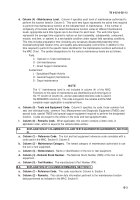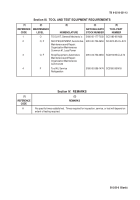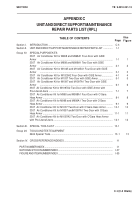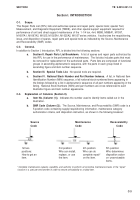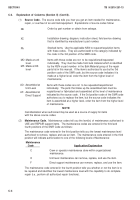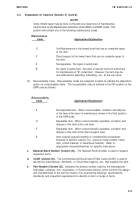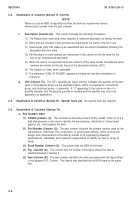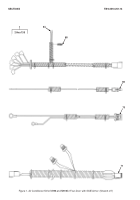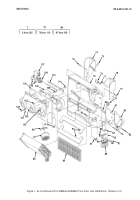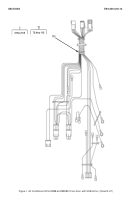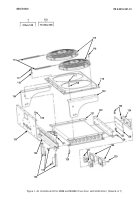TB-9-2510-251-13 - Page 324 of 624
SECTION I
TB
9-2510-251-13
C-3.
Explanation of Columns (Section II) (Cont’d).
NOTE
When you use an NSN
to requisition an item, the item you receive may have a
different part number from the part ordered.
C-6
f.
Description (Column (6)).
This column includes the following information:
(1)
The Federal item name and, when required, a minimum description to identify the item.
(2)
Items that are included in kits and sets are listed below the name of the kit or set.
(3)
Spare/repair parts that make up an assembled item are listed immediately following the
assembled item line entry.
(4)
Part Numbers for bulk material are referenced in this column in the line entry for the
item to be manufactured/fabricated.
(5)
When the item is not used with all serial numbers of the same model, the effective serial
numbers are shown on the last line(s) of the description (before UOC).
(6)
The Usable on Code, when applicable.
(7)
The statement “END OF FIGURE” appears just below the last item description in
Column 6.
g.
QTY (Column (7)).
The QTY (quantity per figure column) indicates the quantity of the item
used in the breakout shown on the illustration figure, which is prepared for a functional
group, sub-functional group, or assembly.
A “V” appearing in this column in lieu of a
quantity indicates that the specific quantity is variable and the quantity may vary from
application to application.
C-4.
Explanation of Colulmns (Section III).
Special Tools List.
No special tools are required.
C-5.
Explanation of Colulmns (Section IV).
a. Part Number Index
(1) CAGEC (Column (1)).
The Commerical And Government Entity (CAGE) Code (C) is a 5
digit alphanumeric code used to identify the manufacturer, distributor or Government
agency, etc., that supplies the item.
(2) Part Number (Column (2)).
The part number indicates the primary number used by the
manufacturer (individual, firm, corporation, or government activity), which controls the
design and characteristics of the item by means of its engineering drawings,
specifications, standards, and inspection requirements to identify an item or range of
items.
(3) Stock Number (Column (3)).
This column lists the NSN for the item.
(4) Fig.
(Column (4)).
This column lists the number of the figure where the item is
identified/located in Section II.
(5) Item (Column (5)).
The item number identifies the item associated with the figure listed
in the adjacent FIG. Column.
This item is also identified by the NSN listed on the same
line.
Back to Top


